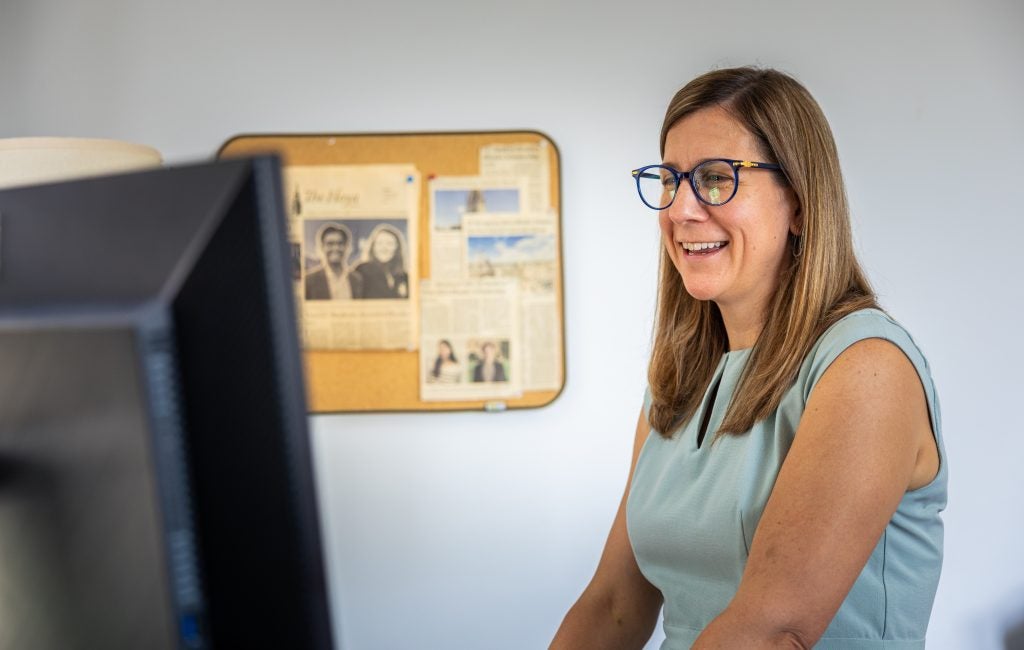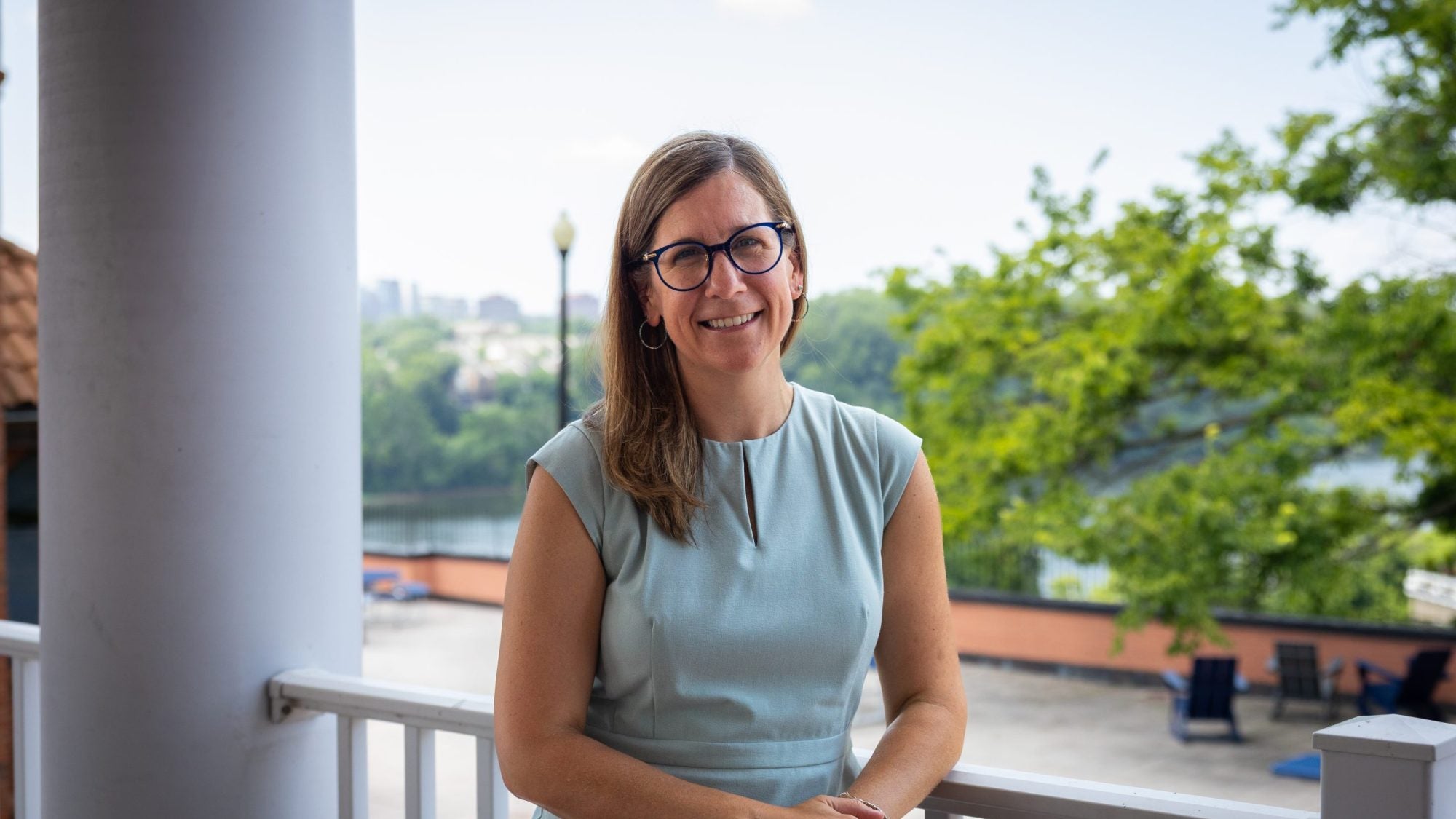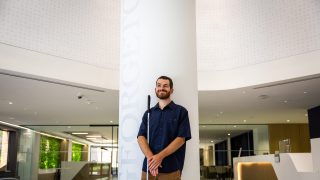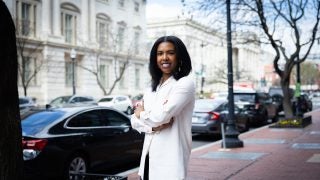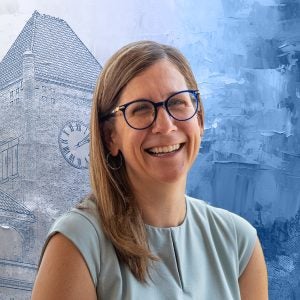
Lauren Tuckley is the director of the Center for Research and Fellowships (CRF).
She’s built up Georgetown’s Fulbright program, which consistently ranks as a top producer of student awardees. She mentors students and young alumni competing for the Rhodes and Marshall Scholarships. In 2024, Georgetown had three Rhodes winners — the first time in 30 years that three Hoyas were selected in the same year.
Since joining the center in 2011, Tuckley has refined her approach to advising. And it’s not about checking the right boxes or polishing the resume.
“Whether or not you win a fellowship doesn’t matter to me,” she said. “The opportunity to talk to a student about applying for a fellowship is the opportunity to ask them critical questions about what they care about and why they care about it, and then how they can make a career. I can use that as a vehicle to help you understand your purpose in life.”
Tuckley’s own path was not as straightforward. She grew up in a small city in West Texas, where she attended high school and college. Her sophomore year, she studied abroad in London, and her world swelled. She didn’t book a return trip home.
“I was shocked by how global things were,” she said. “That was the first moment where I swerved from the traditional path.”
After two years abroad, Tuckley returned to the U.S. to continue studying psychology. She worked at a psychiatric hospital in Texas, with community members with mental illnesses in DC, and at a health care research institute. She also began pursuing her master’s in social and public policy at Georgetown’s School of Continuing Studies, where she found a new calling in working with students.
Tuckley joined Georgetown’s Office of Advancement in 2010 before transitioning to CRF and rising through the ranks. In her role, Tuckley has found that mentoring students feeds into her therapeutic training. She’s also found she gets to ask students questions she was never asked growing up.
“I had to figure things out by trial and error without a lot of guidance or foresight provided,” she said. “I think that the most rewarding thing about being a fellowship advisor is that I can say, ‘Hey, have you thought about this? Are you thinking about how your academic area intersects with something you care deeply about that’s rooted in a value or principles you have?’”
Learn more about Tuckley’s path to advising, her secret sauce to mentorship and her relationship with her home state.
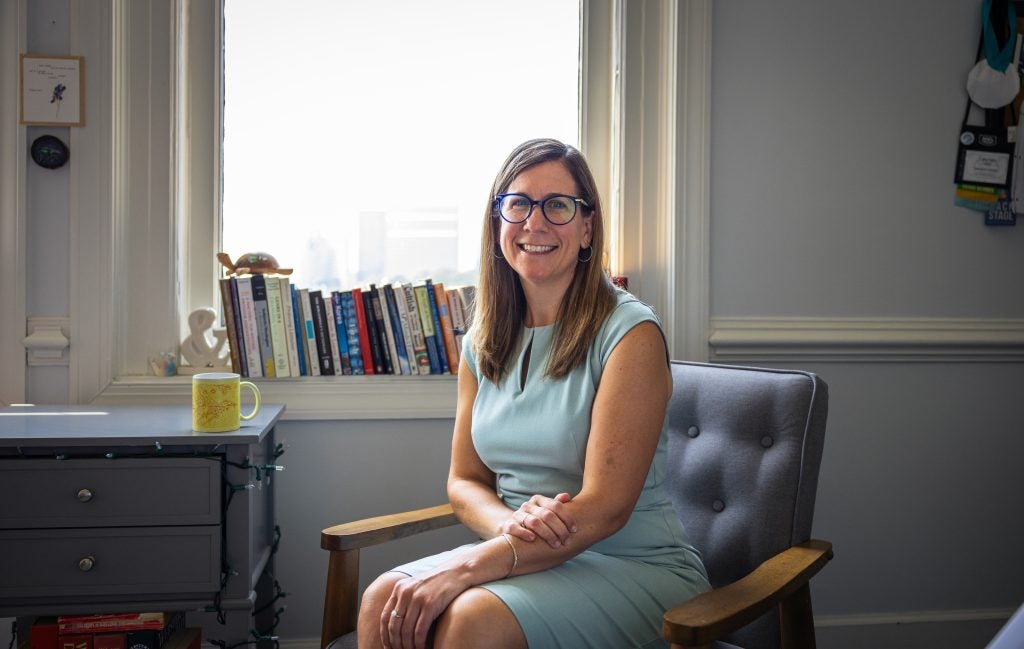
That time I booked a one-way ticket: I grew up in Wichita Falls, Texas, which is about 120 miles from Dallas near the Oklahoma border. I was a preacher’s kid. I didn’t think much about what was going on outside of Texas. I ended up going to a small regional college in my hometown, Midwestern State University.
During my sophomore year, I had the opportunity to study abroad. I went to London and then just stayed. I didn’t get my plane ticket home. I got a lot of exposure to new things I hadn’t when I had been in Texas.
Culture shock in London: I was shocked by how global things were. I had a very insulated upbringing: I went to church three times a week. My extracurriculars were at church, my friends were at church, my basketball team was at church. So to go abroad was a little bit jarring, because it gives you an entirely radical perspective. I learned a lot about American culture from another perspective. It’s funny now that I advise on UK scholarships, because the UK was so formative for my own personal experience, and I hadn’t realized how much until reflecting back on it.
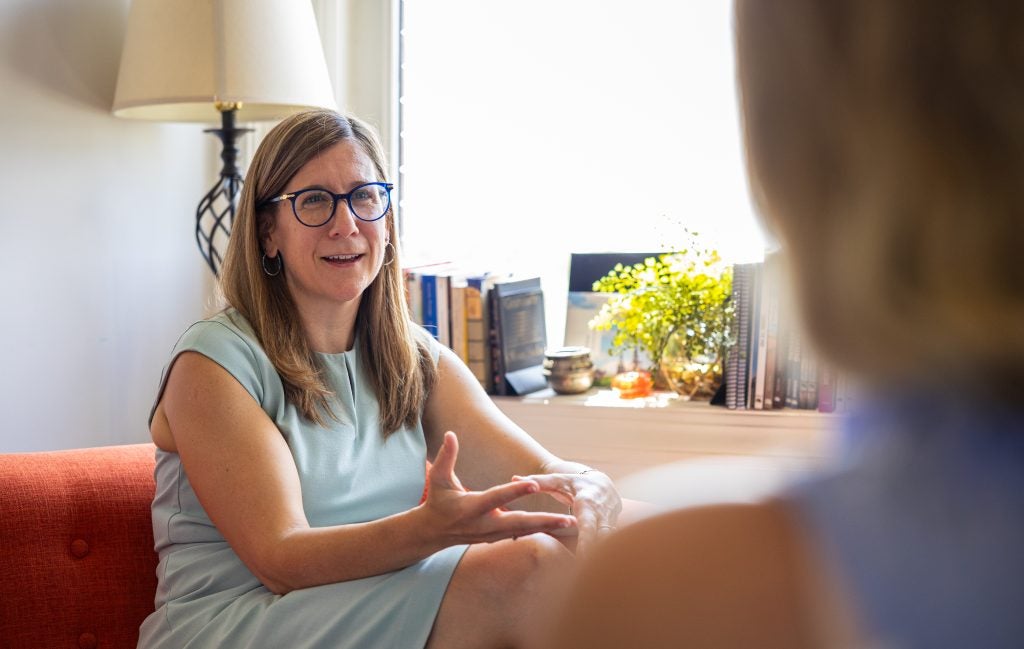
My approach to advising students: We always start with the end goal: What would you be doing in 20 or 30 years that would make you happiest, given the values you have that are blank? After you get to that point, we reverse engineer the academic plan, which is almost perfunctory in support of this other, more meaningful and important goal.
If you come through the office and you lose, you win. Mary Oliver has this quote: “What are you going to do with your one wild and precious life?” If I can ask students to really reflect on that question, then I no longer care about the outcome in terms of whether they win or lose, because I can help somebody.
What makes being a fellowship advisor rewarding: There are real moments where you feel like you’re working toward something with a student, and you feel a part of that. I mean, how can you not want to wake up and do that job? It’s enormously rewarding, and I’m very grateful to Georgetown for allowing me the opportunity to do that kind of work and for it to be mutually beneficial for the institution, for the student and for me. You can’t do this work alone, and my team is important to me, and they’re important to the students that we’re serving.
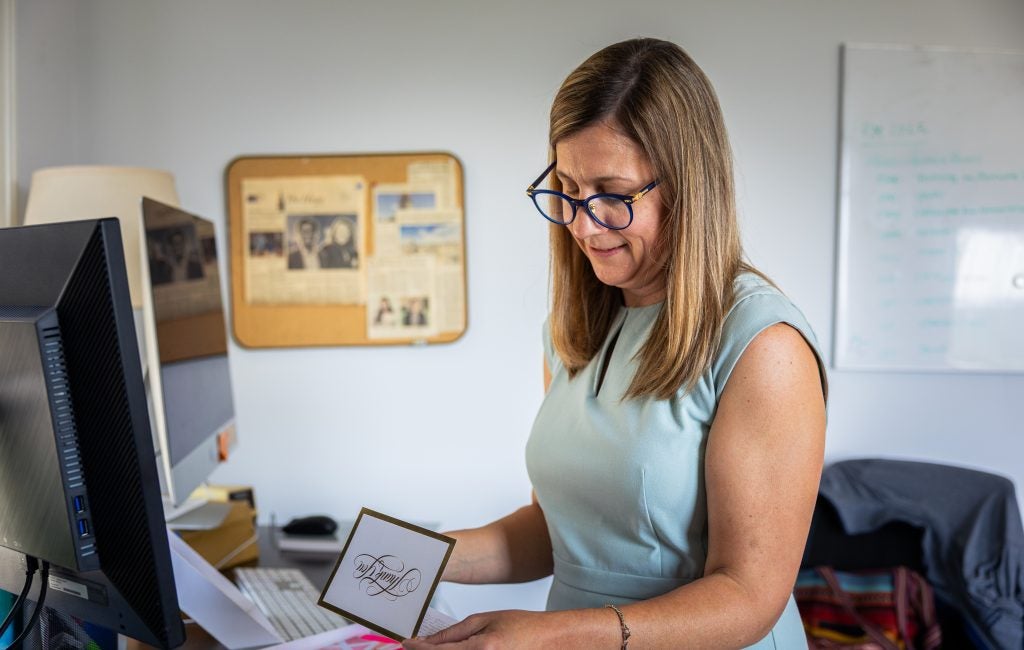
One thing no one else is doing: I started running pods in the pandemic, where our nominees would come together and write and get feedback in the community and share their goals. What I learned is that if you create little communities, they’ll work harder, because they’re working for one another — not for me or the university. Nobody else does this nationally. Nobody would dream of putting their competitors in a pod together and saying, now we’re going to work together.
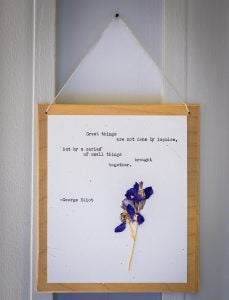
Last year, I had two finalists in the Rhodes in DC. The winner’s phone went dead. She used her competitor’s [phone], who called me and said, ‘Hey, I want to let you know I didn’t get it. But we have great news.’ He’s like, ‘We got one. Georgetown. Our team.’ That only happens if they care about one another.
One thing I wish people knew about me or my role: I wish that they understood the serious professional and academic advising that we offer students through the opportunities that we administer. If we’re thinking about student development, caring about the whole person, helping a student leave Georgetown with a sense of understanding how their academic experience and their Georgetown experience are meaningfully connected to what happens next, all of that is the core of what we do.
I wish that we could do it for greater numbers. There are only a few eligible Rhodes candidates on any given campus for a number of reasons, but the methods that we apply can be applied to any student. You could have the same conversation applying for a job. Anybody would benefit from the type of postgraduate conversations that we have with students, and I wish we could do it with more.
When I’m not advising: I am serially bouncing around book clubs. I like to read, but I’m trying to find the best book club that satisfies my readerly interest. At this time of the year, you’ll find me at the pool. One because I like being in the sun reading, but also, my kids are on the dive team at our local pool, so it’s fun to see what they’re doing. If I’m not in Washington, DC, then I’m in West Texas, where my family lives. It’s a place I enjoy going now.
